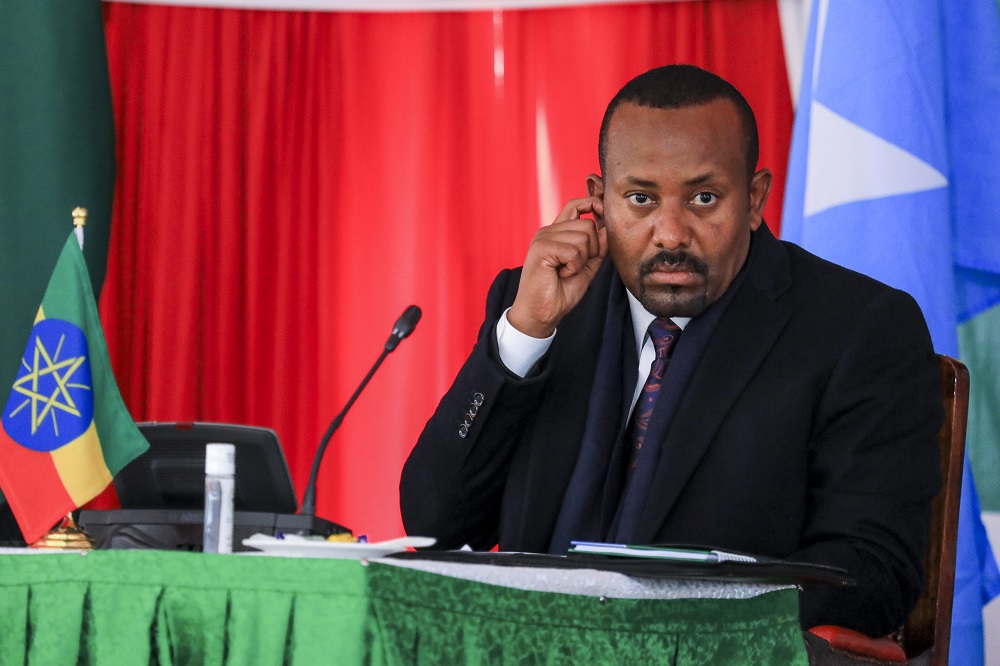IPI, the global network of editors, media executives and leading journalists, is concerned by the deteriorating press freedom situation in Ethiopia, including the ongoing detention of at least ten journalists, including Gobeze Sisay and Meaza Mohammed, who were arrested last week. In addition to calling for the release of all imprisoned reporters, IPI calls on all sides in Ethiopia’s ongoing internal conflict to respect the rights of the press.
A faded new dawn for press freedom
In 2018, two years before the intensification of the Tigray conflict in November 2020, the government under Nobel Peace Prize laureate Prime Minister Abiy Ahmed offered a glimpse of a new dawn for media freedom and journalists in Ethiopia. The state loosened its grip over the media landscape, including allowing previously banned or shuttered online media and television broadcasters to operate freely. As IPI previously reported, more than 200 critical websites and TV channels resumed their work, and dozens of journalists were released from prison after Ahmed’s came to power.
However, the press freedom situation has since deteriorated again amid the ongoing Tigray conflict. This past May, IPI documented the arrests and detention of nearly two dozen journalists and media workers against the backdrop of what the authorities termed an ‘’anti-crime operation’’ targeting publications the government accuses of promoting violence.
At least eight journalists behind bars
The ongoing conflict has rendered independent media reporting more difficult, but also more necessary. However, according to some Ethiopian journalists who talked to IPI, the press freedom challenges related not just to the current internal crisis in the country. The lack of a legal framework that sufficiently protects the rights of the media is also contributing to the ease with which journalists are arrested and detained.
“Anyone from the federal government or regional government or anyone either from defence, police force or intelligence service or sometimes some unknown guy might come to your home without any search warrant and take you to the unknown prison cell and even your families might not be aware your whereabouts for weeks or months”, Sisay Sahlu, editor at The Reporter Newspaper and general secretary of the Ethiopian Mass Media Professionals Association (EMMPA), told IPI.
To date, it is still unclear exactly how many journalists are behind bars in Ethiopia, given the difficulties of accessing information in the country, with the means of communication controlled and often disrupted. In addition, there is a pervading atmosphere of fear and self-censorship among media and journalists concerning critical reporting.
However, as of the time of this article, it is believed that at least 10 journalists are behind bars across the country because of their journalistic work, according to media reports and right groups. These journalists are detained by both the federal government and the Tigray People Liberation Front (TPLF).
Most recently, on September 8 and 9, respectively, Ethiopian authorities arrested Gobeze Sisay of The Voice of Amhara and Meaza Mohamed of Roha Media, both YouTube-based media, in connection with their coverage of the Tigray conflict. Both were accused of ‘’terrorism-related crime’’ by the authorities. The pair had previously been arrested in May during the government’s “anti terrorist operation”, though were later released.
Among other journalists in jail is Temesgen Desalgn, editor of the magazine Feteh. He was arrested and detained on May 26. He is accused of breaches of military and official secrecy and inciting the public through false rumors and publication of “recurrent articles against the Ethiopia National Defense Force”. He was granted bail on July 4, but the authorities disregarded the court order, and are keeping him in prison.
Before the arrests and detention of at least 19 journalists and media workers that IPI documented in May, two other journalists, Dessu Della and Bikila Amenu were in prison. Both work for Oromia News Network. The two journalists are accused of fomenting a rebellion against the government and risk life imprisonment because of their media coverage of the conflict in the Tigray and Oromia regions.
“The case is adjourned for hearing of witnesses at the end of September 2022. The trial court has already denied their bail right”, Milkiyas Bulcha, the lawyer for the two journalists, told IPI.
Meanwhile, reports indicate that the Tigray People’s Liberation Front (TFPL) has detained at least five journalists: Misgana Seyoum, Dawit Mekonnen, Banen Halefom, Teshome Temalew, and Hailemichael Gessesse. They have been behind bars since May 2022. They have not yet been charged although they have appeared in court over eight times. In this case, also, the five journalists were arrested because of their media work, and have been accused by TFLP authorities of “collaborating with the enemy”.
Call for release of journalists
IPI is increasingly concerned by the current situation of the detention of journalists in Ethiopia, and calls on the Ethiopian authorities to release all journalists currently held.
“Independent journalism is more essential than ever in times of conflict. The Ethiopian authorities and other conflict parties must ensure that journalists can do their jobs of informing the public without fear of reprisal”, IPI Deputy Director Scott Griffen said. “IPI calls for the immediate release of all journalists in Ethiopia detained in connection with their work.”
